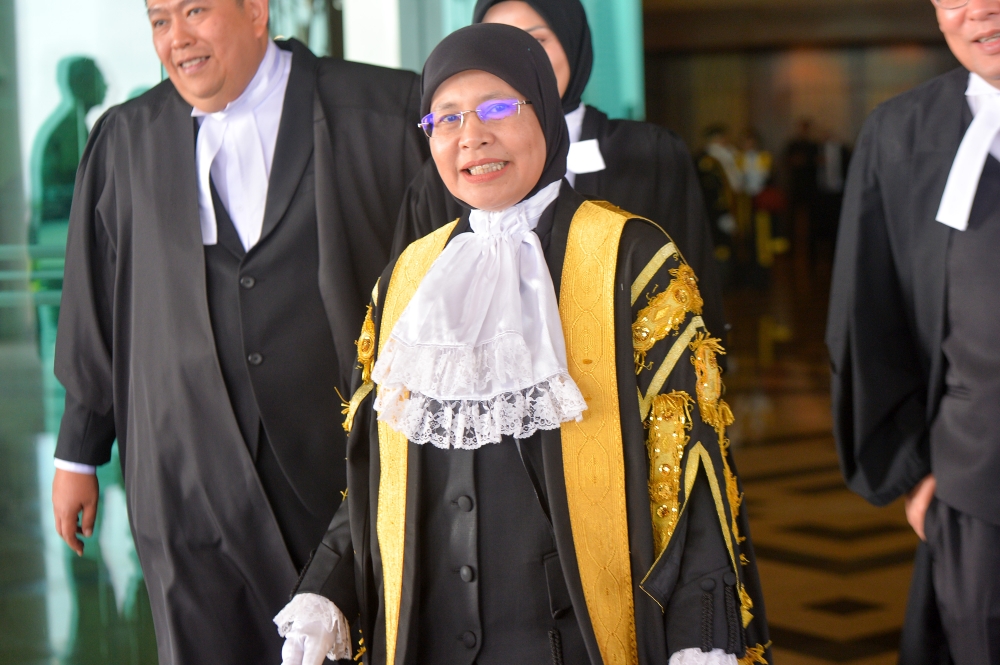JANUARY 13 — In her last Opening of the Legal Year speech as Chief Justice, Tun Tengku Maimun Tuan Mat expressed optimism that her successor would be fully compliant with all aspects of the law while considering the need to keep the judiciary independent in view of the unfortunate and blemishing events of history.
“The law has developed in a positive manner where fundamental rights and liberties are given their utmost interpretation and enforced to their maximum potential.”
“The role of an independent judiciary has been restored, and the public is confident in us,” she said.
That last statement brings back memories of the past before “the unfortunate and blemishing events of history”.
We must recall, as Tengku Maimun herself reminded us to, how Tun Salleh Abas reminded the judges that they ought to observe and respect the concept of separation of powers, that judges should not encroach into the domain of the Executive or the Legislative branches of the government.
Yet the judiciary has a crucial role to invalidate any acts of the Executive, or the Legislative should they transgress their powers beyond the limits granted to them by the Federal Constitution.
In the case of Lim Kit Siang v Dato Seri Dr Mahathir Mohamad [1987], in a short but erudite judgment, Lord President Salleh Abas had this to say:
“The courts have a constitutional function to perform and they are the guardian of the Constitution within the terms and structure of the Constitution itself; they not only have the power of construction and interpretation of legislation but also the power of judicial review – a concept that pumps through the arteries of every constitutional adjudication and which does not imply the superiority of judges over legislators but of the Constitution over both.
“The courts are the final arbiter between the individual and the state and between individuals inter se, and in performing their constitutional role they must of necessity and strictly in accordance with the Constitution and the law be the ultimate bulwark against unconstitutional legislation or excesses in administrative action.

“If that role of the judiciary is appreciated then it will be seen that the courts have a duty to perform in accordance with the oath taken by judges to uphold the Constitution and act within the provisions of and in accordance with the law.”
That the courts are the final arbiter between the individual and the state must not be lost on us as we meander about, around and along on the issue of the royal addendum order relating to former prime minister Najib Razak's house arrest.
This despite Najib’s application for judicial review has now proceeded to the substantive stage, where the full merit of the case for judicial review gets ventilated and decided by the High Court.
And despite the matter is sub judice!
If the temptation to put in, up and forth, an opinion is too much, keep it private.
We must bask in the optimism of the Chief Justice that the courts will be “fully compliant with all aspects of the law” where fundamental rights and liberties will be “given their utmost interpretation and enforced to their maximum potential”.
Even between Najib and the authorities.
* This is the personal opinion of the writer or publication and does not necessarily represent the views of Malay Mail.





















